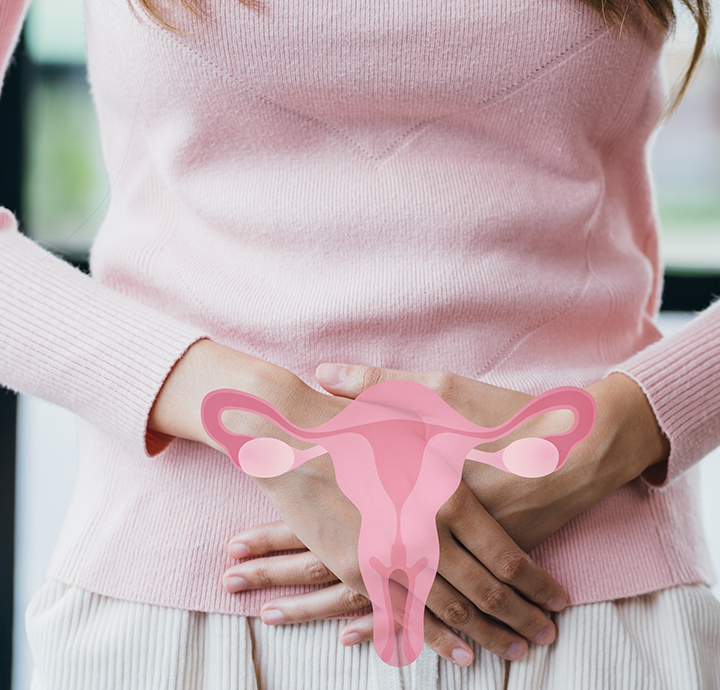
Premature ovarian insufficiency is a health condition related to the female reproductive system, where the ovaries fail to function adequately.
The ovaries play important roles in women, such as producing eggs (ovulation) and producing sex hormones (like estrogen and progesterone). If a woman does not have a menstrual period for one year or more, it can be considered the onset of menopause. Early menopause, a condition seen among women, can affect reproductive health.
"What is early menopause?" is one of the most frequently asked questions. Essentially, it refers to a condition where menopause occurs before the typical natural menopause period, which usually happens between the ages of 45 and 55. The age of early menopause is before 40. In this condition, the ovaries slow down or completely stop their functions earlier than normal.
Premature ovarian insufficiency is a significant concern that can affect young women, and it can manifest with various signs and symptoms. These symptoms can vary over time and appear differently in each individual. Disturbances related to menstruation, such as irregular menstrual cycles, shorter or longer periods, and heavy bleeding, are among the main indicators of this condition.
Symptoms of premature ovarian insufficiency can include menstrual irregularities, vaginal dryness, and urinary problems. Experiencing hot flashes, like in menopause, can also be another sign of this issue. Symptoms like sudden sweating and increased body temperature characterize hot flashes. Sudden feelings of fatigue and sleep problems could also be indicative of this condition due to hormonal imbalances.
On the other hand, hormonal changes can negatively affect sexual desire. Decreased libido can be one of the symptoms of premature ovarian insufficiency. Hormonal fluctuations can also lead to vaginal dryness, causing pain and discomfort during intercourse. Additionally, susceptibility to urinary tract infections can increase, leading to pain or discomfort during urination.
Various methods and tests are used to diagnose premature ovarian insufficiency. Since this condition can impact the reproductive health of young women, accurate diagnosis is important. Below are the methods commonly used to diagnose early menopause:
Blood tests are used to assess whether the ovaries are producing hormones at lower levels than normal. Hormone levels such as FSH (Follicle Stimulating Hormone) and estrogen are evaluated. In the case of premature ovarian insufficiency, FSH levels can rise, while the result of the second test may appear low.
The doctor will evaluate the patient’s symptoms and medical history. Additionally, a physical examination can be conducted to determine if these signals are visible physically. Pelvic ultrasonography is also used as an imaging method to assess the condition of the uterus and ovaries. This allows for the measurement of ovarian size and the identification of any abnormalities.
Tests like AMH (Anti-Müllerian Hormone) can also be used for detection in this condition. Low AMH levels may indicate a decrease in ovarian function. In some cases, genetic factors can influence susceptibility to premature ovarian insufficiency. Tests for this purpose are used to identify potential hereditary causes. They assess the ovaries' response capacity. Additionally, measuring GnRH (Gonadotropin-Releasing Hormone) can provide insights into how the ovaries respond to hormones.
The treatment of premature ovarian insufficiency, also known as early menopause, can involve various methods such as hormonal therapies and lifestyle changes. The timing of the diagnosis and its early detection are important factors that can enhance the patient's chances of success. The primary aim is to prevent potential associated issues and improve the individual's quality of life. The effects of early menopause can have negative impacts on areas like bone and heart health.
The first option, hormonal therapy, aims to address the deficiency of hormones like estrogen and progesterone. This method can help improve menstrual regularity and preserve bone health. Additionally, adopting a healthy diet, engaging in regular exercise, and managing stress can help mitigate the effects of early menopause. However, the process can often be emotionally challenging. Support from psychologists or therapists can assist patients in coping with this period.
There could be a connection between early menopause and infertility, as the decrease in ovarian function can affect the chances of pregnancy. In such cases, assisted reproductive technologies like in vitro fertilization (IVF) could be a significant option to enhance the probability of pregnancy. IVF involves fertilizing eggs outside the body and then transferring them to the uterus. This innovative treatment can be an important choice for women with premature ovarian insufficiency, potentially enabling pregnancy irrespective of the ovaries' normal functioning.
However, the outcomes of this treatment can vary based on individual factors. Success probability is determined by the patient's age, health status, and other factors. It's essential to consult with a specialized healthcare professional to evaluate this option thoroughly.
Premature ovarian insufficiency can increase the risk of infertility, but there are treatment options available. Dr. Nurettin Türktekin, with his expertise in women's sexual health, patient-focused approach, and emphasis on advanced technology, has successfully performed numerous operations in his field. Understanding the causes of early menopause is crucial for finding solutions. For more information about procedures and to schedule an appointment, please contact us using the provided contact information.



Ovarian cysts are fluid-filled sacs or vesicles seen inside the ovary. Normally, during each menstrual period, a cyst called a follicle, which carries the egg cell and can reach 3 cm in size, forms in the ovaries. Then this cyst cracks and the egg is released. In young girls with ovulation problems, normal or physiological follicle cysts that cannot rupture can grow every month and reach 5-10 cm, while small numbers of 0.5-1 cm in size, which we call polycystic ovaries, can be seen in series. Apart from these functional cysts, benign or malignant ovarian cysts can also be seen in all age groups.
Except for the most common functional ovarian cysts, cysts can be benign or malignant tumoral cysts. In addition, as a result of infection, abscess-shaped cysts may occur, which is usually accompanied by pain and high fever.
No, the condition of premature ovarian insufficiency can vary from woman to woman. Symptoms, causes, and treatment options can differ from case to case.
Premature ovarian insufficiency refers to the loss of ovarian function, while early menopause signifies the complete cessation of the menstrual cycle. The difference between the two is evident in irregular menstrual patterns and hormonal changes.
Lifestyle factors such as healthy eating, regular exercise, and stress management can contribute to reducing the risk of early menopause.